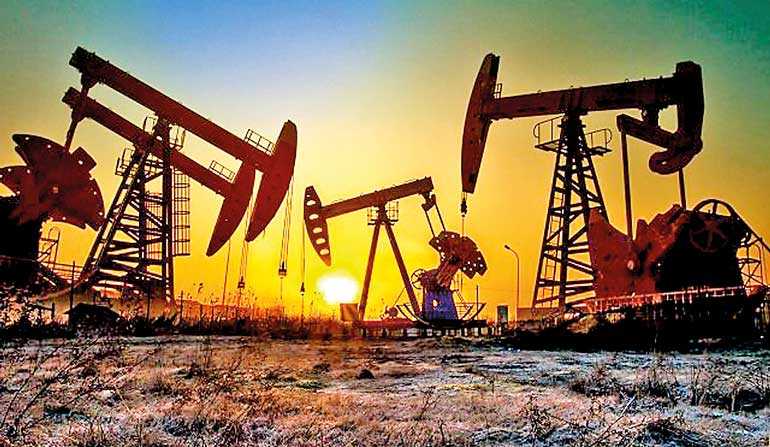Wednesday Feb 18, 2026
Wednesday Feb 18, 2026
Wednesday, 19 June 2019 00:00 - - {{hitsCtrl.values.hits}}

TOKYO (Reuters): Oil prices eased for a second day yesterday on signs that global economic growth is being hit by the US-China trade war, although losses were limited by tensions in the Middle East after last week’s tanker attacks.
Brent crude futures were trading down 19 cents, or 0.3%, at $ 60.75 a barrel by 0320 GMT. They fell 1.7% in the previous session on concerns about slowing global growth.
US West Texas Intermediate (WTI) crude futures were down 17 cents, or 0.3%, at $ 51.76. They dropped 1.1% on Monday.
The New York Federal Reserve said on Monday that its gauge of business growth in New York State posted a record fall this month to its weakest level in more than 2-1/2 years, suggesting an abrupt contraction in regional activity.
US business sentiment has sagged as tensions over trade have escalated between China and the US and on signs of softness in the labour market.
“The (oil) market is in a rut and desperately in need of some robust economic data to get it out of this funk,” said Vanguard Markets Bangkok Managing Partner Stephen Innes.
Oil prices have fallen around 20% since 2019 highs reached in April, in part due to concerns about the US-China trade war and disappointing economic data.
US President Donald Trump and China’s President Xi Jinping could meet at the G20 summit in Japan later this month. Trump has said he would meet Xi at the event, although China has not confirmed the meeting.
Putting further pressure on oil, the US energy department said on Monday that shale oil output is expected to reach a record in July.
But tensions in the Middle East are likely to keep prices supported, analysts said.
Acting US Defense Secretary Patrick Shanahan announced on Monday the deployment of about 1,000 more troops to the Middle East for what he said were defensive purposes, citing concerns about a threat from Iran.
Fears of a confrontation between Iran and the US have mounted since last Thursday when two oil tankers were attacked, which Washington has blamed on Tehran. Iran has denied involvement.
Saudi Arabian Energy Minister Khalid al-Falih said on Monday that countries need to cooperate on keeping shipping lanes open for oil and other energy supplies to ensure stable supplies.
Market participants are also awaiting a meeting between the Organization of the Petroleum Exporting Countries and other producers including Russia, a group known as OPEC+, to decide whether to extend a production cut agreement that ends this month.
Al-Falih said that Saudi exports and production are expected to be at “about the same level as in the last few months”.